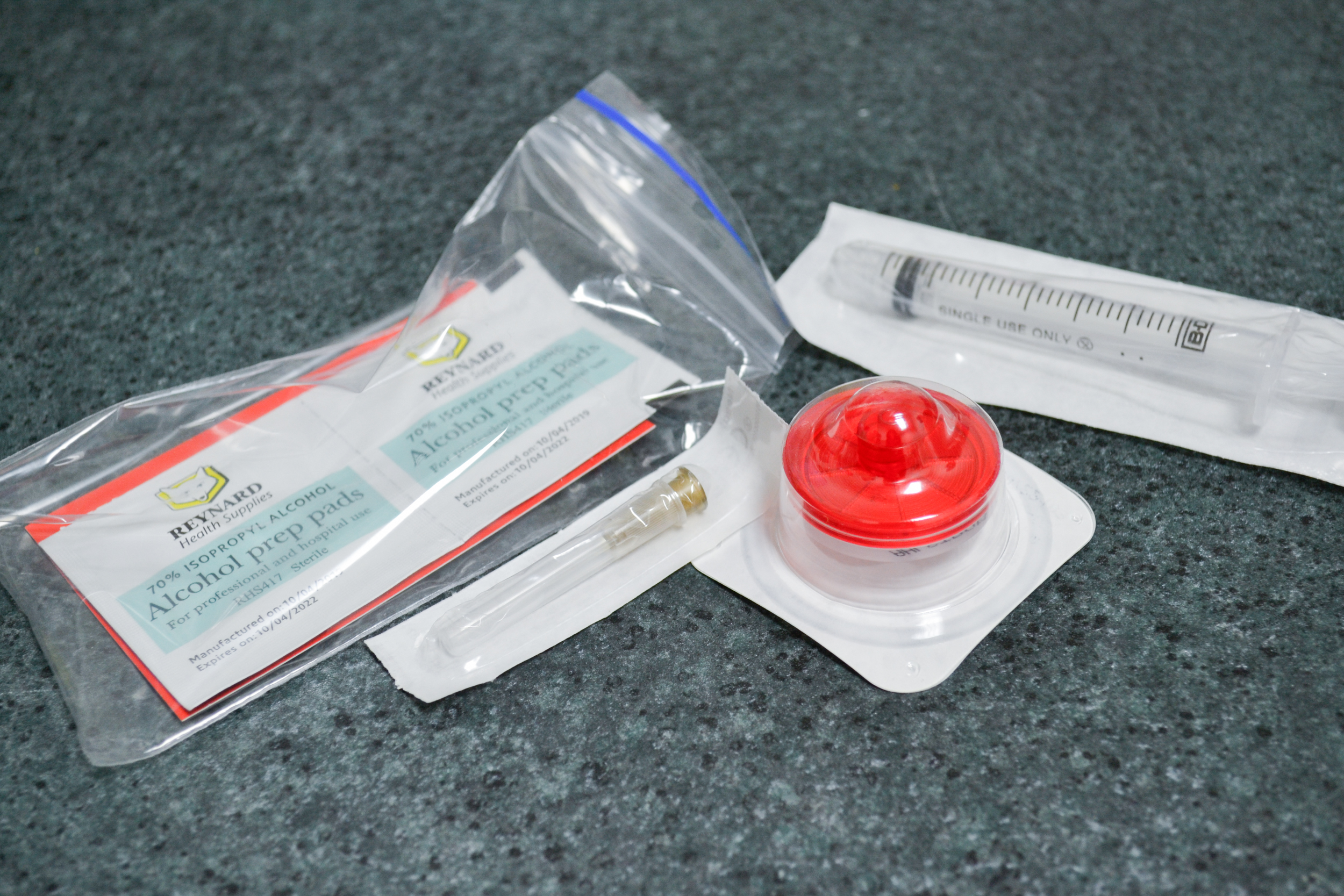
What is the New Zealand Needle Exchange Programme?
Aotearoa was the first country in the world to bring in a state-funded, nation-wide needle and syringe programme in the late '80s. In 2004, the New Zealand Needle Exchange Programme established a free service where people could swap a used needle for a new one. New, sterile equipment is key for preventing infection and keeping you safer when you’re using.
There are 20 dedicated exchanges and two mobile needle exchanges operating across the country, where you can access needles, syringes, wheel filters and more, free of judgement. There’s also about 200 pharmacies and other outlets across the country that are part of the needle exchange programme where you can access equipment.
Here’s what to expect if you’re heading to a needle exchange outlet for the first time.
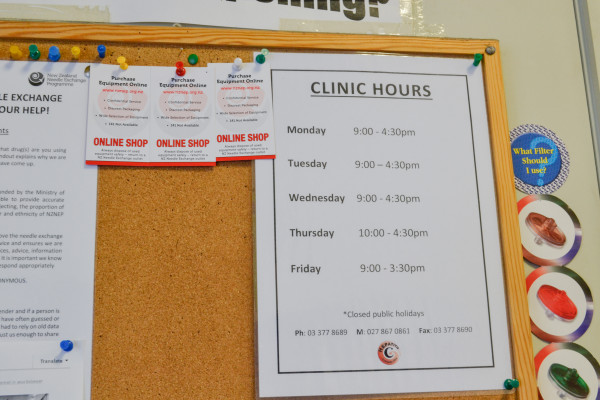
Find a needle exchange near you
First, find your local needle exchange on their website. Some needle exchanges have equipment accessible 24/7 via vending machine, and they all have safe disposal boxes for your sharps. Needle exchanges are generally open on weekdays, but weekend hours can vary so it pays to check. Some needle exchanges may be operating under reduced hours due to Covid-19
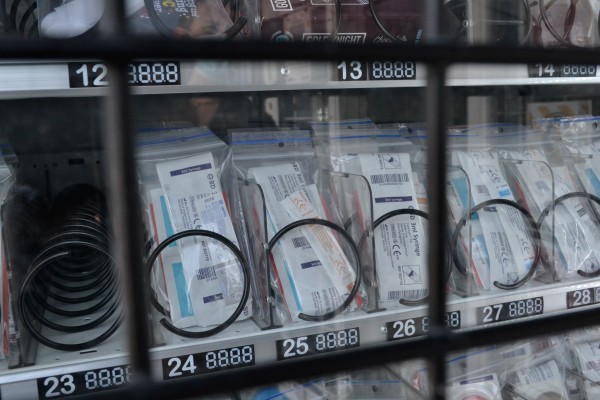
Needle Exchange vending machine
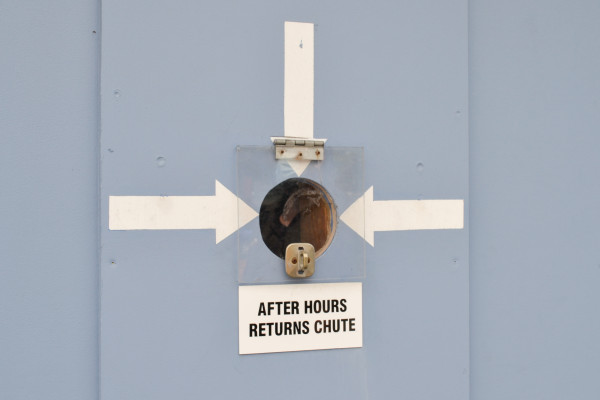
After hours sharps return chute
Who works at needle exchanges
The friendly staff at needle exchanges are usually people who have their own lived experience of injecting drugs. They’re there to help you get what you need, and they’re always happy to answer questions or provide advice and information. You won't be asked for any personal info unless staff need to pass on your details as a referral to another service.
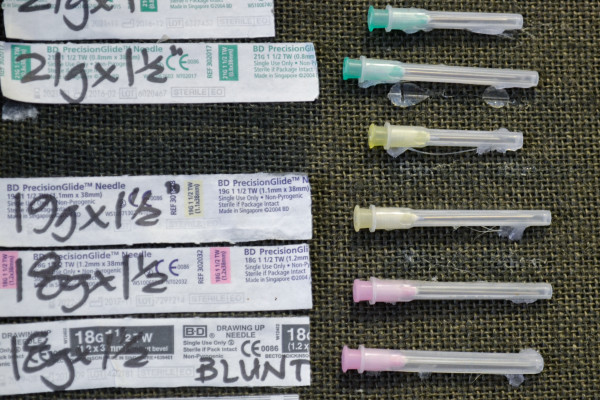
Board showing sizes of needles that can be purchased
What you can get at a needle exchange
There’s a free exchange service where you can return used needles and syringes in exchange for new needles and syringes. Note that currently only 3mL syringes are funded for this. Any Needle Exchange outlets, including pharmacies, will display a sticker or sign outside with these arrows. If the service offers needle exchange (where you can return used needles and syringes in exchange for new needles and 3ml syringes) it will also have 1-4-1 displayed.
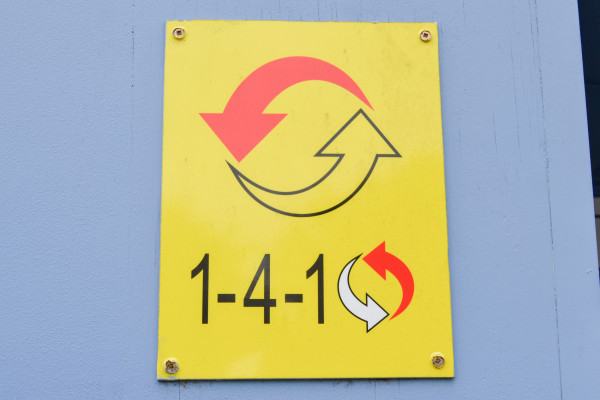
1-4-1 needle exchange sign
If you need other kit – like different sized syringes, butterfly needles, wheel filters, sterile water or tourniquets – you can buy these at a low cost.
Wheel filters help you stay safer by filtering out impurities, fillers and bacteria that could damage your body or make you sick. Watch this quick video to find out how to use wheel filters.
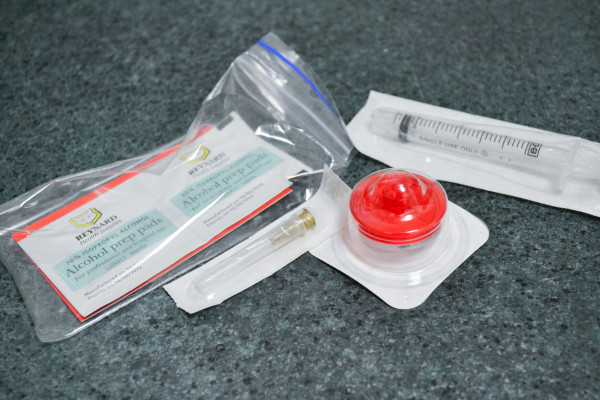
A kit with alcohol prep pads, needle, syringe and wheel filter
If you're not sure what you need, you can tell the needle exchange staff what you're using and they can help.
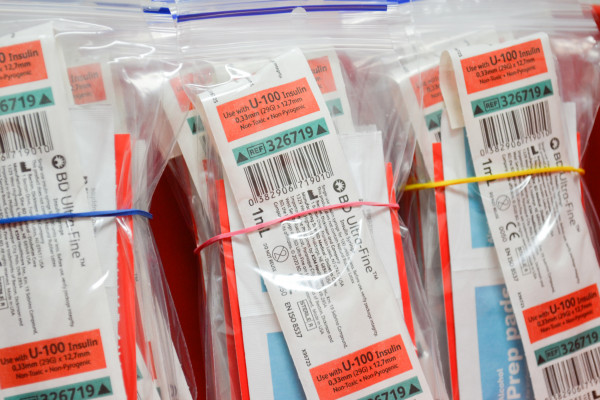
You can also buy all your equipment online from the Needle Exchange. It ships in discreet plain packaging.
Other services at the needle exchange
There’s no one type of person that uses the service. Needle Exchange Harm Reduction Lead Jason George says they have noticed more people coming to needle exchanges to get equipment for steroids or other performance or image enhancing drugs. Jason adds that anyone who requires kit for injecting is welcome at the Needle Exchange – no matter what they’re using it for – and price shouldn't be a barrier.
"We try to give people what they need, regardless of whether or not they can pay for it. Some of the clients will leave a little extra money and say 'that's for the next person that can't afford it,'" says Jason.
Being able to access what they need without judgement can open the way for further conversations with needle exchange staff, who can suggest ways of doing things more safely and provide referrals for further support if people need it.
“Some people pick up bad habits, in terms of how they're injecting or using their equipment, but we're always happy to talk people through things,” says Jason.
Knowing what you’re taking means you can make informed decisions about how you’ll use. Some needle exchanges offer free, legal drug checking to help you find out if your drugs are what you think they are, or if they've been mixed with anything else. Find a drug checking clinic near you.
The Needle Exchange Programme currently has a focus on reducing Hepatitis C in communities of people who use drugs, and some needle exchanges offer free Hep C testing. Read advice from Jason on accessing Needle Exchange services during Covid-19.
To find your local Needle Exchange or to buy kit online, check out their website.
Related stories
Recent stories
SMART Recovery: Support groups without the need for abstinence or a higher power
We explore what it is and how it has positively affected people's lives.
Kamini: What you need to know
EDs and doctors have seen more people seeking help for opioid overdose, withdrawal, and addiction after using kamini. Here's what you need to know about the opioid-containing remedy.
Pseudoephedrine: what you need to know
Pseudoephedrine is back on the shelves. Here's what you need to know about this cold & flu medication.